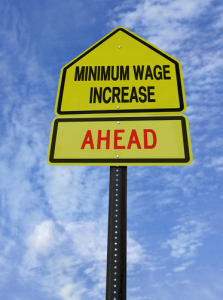
There are many negative effects of raising the minimum wage in the United States, in fact.
Does the minimum wage need to increase? Maybe it does. Does it need to more than double, jumping to $15 per hour across the country? Probably not – I think that it’s a bad idea. There are negative effects of raising the minimum wage too much and too fast.
According to a recent LendEDU poll, 52% of Millennials do not think an increase in the minimum wage is a good idea.
Negative Effects of Raising Minimum Wage
Here are a few things to consider why jumping from the current national minimum wage of $7.25 to $15 per hour isn’t a good idea.
Raising the minimum wage isn't always the best course of action for the American economy.Click To TweetFewer Jobs Are Created With Higher Minimum Wages
One of the negative effects of raising the minimum wage is that fewer jobs are created.
Many employers will choose to hire fewer employees than they would have done. If the federal minimum wage more than doubles to $15 per hour, many employers may be forced to hire one person instead of two for job openings. They will be forced to simply do without the additional help. Now one person will cost as much as two with a $15 minimum wage.
A higher minimum wage will also increase the costs of items that the average American buys. Do you think that the price of your McDonald’s Big Mac will remain the same if the fast food chain has to pay double for its labor costs?
We will start to see the cost of a lot of items in the country rise. It will bring about an across the board rise of inflation as a result too.
Raising the Minimum Wage Doesn’t Reduce Poverty
Studies have shown that raising the minimum wage does not reduce overall poverty in America. Research from the Employment Policies Institute shows that raising the minimum wage hurts the minimally skilled and the least-experienced citizen searching for jobs the most.
Increasing the minimum wage has not proven to be effective at lowering the overall poverty rate in America. According to economists at the Federal Reserve Board and the University of California-Irvine, research shows that a higher minimum wage reduces employment for those with the least amount of skills and has little to no effect on poverty rates.
There is little to no relationship between higher minimum wage and reductions in overall poverty levels in America.
Teens Will Struggle to Find Summer Jobs
Parents across the nation look forward to their children taking responsibility and earning spending money at a summer job. It is a rite of passage in American for most families.
But, many teens will find it hard to find as many jobs as before if the minimum wage is raised. These minimum wage jobs are typically the starting points for many teens looking for summer jobs, which are often their first jobs.
The University of New Hampshire Survey Center conducted a survey of leading national economists discussing specifically the proposed $15 minimum wage raise. Economists believe a $15.00 per hour minimum wage will have negative effects on youth employment levels (83%), adult employment levels (52%), and the number of jobs available (76%).
Raising the minimum wage may keep your teen out of a summer job. Parents may find their teens staying at home this summer even more than their boomerang Millennials do now.
Minimum Wage Jobs Are a Stepping Stone
Minimum wage jobs are not the end. They’re the beginning. Minimum wage jobs are meant to be a stepping-stone on to bigger and better things.
Using that argument, there is nothing wrong with minimum wage jobs. They’re necessary for workers to learn the fundamentals of having a job and what is expected of an employee.
Raising the Minimum Wage Increases Inflation
Inflation is tied to salary growth. We have not seen wage growth in America in the past few years since the recession in 2007-2008. Here is a look at the Department of Labor’s minimum wage chart and the United States’ historic minimum wage growth over the years since the minimum wage’s creation with the Fair Labor Standards Act in 1938.
Jumping up from $7 to $15 is too much, too fast. It’s not in keeping with 3% annual inflation.
If you go back and look at the United States Department of Labor’s historical minimum wage, the minimum wage was $2.90 in 1979. If Congress had increased the minimum wage every year in keeping with a 3% annual inflation level, today’s minimum wage would have only increased to $7.91 in 2015.
Does the minimum wage need to increase from the current $7.25 level? The simple calculation above shows that it should be at least $7.91 this year.
But, does the minimum wage need to jump to $15 an hour across the country? No, not unless you are ready to accept the consequences of higher costs for goods and services.
The Congressional Budget Office Report
The Congressional Budget Office (CBO), a non-partisan government agency that takes proposed legislation and calculates the economic impact, is looking into the effects of raising the minimum wage to $15 per hour. Its newest report dives into the “Raise the Wage Act” — which would increase the minimum wage nationwide to $15 per hour by 2025. It’ll likely pass in the Democrat-controlled House of Reps, but it’s unlikely to become law right now.
With a $15 per hour minimum wage, 17 million people would get their pay upped to $15. And, 10 million more would likely get raises because a rising tide lifts bigger boats, too. Plus, 1.3 million working-poor would escape poverty.
But, The CBO predicts 1.3 million Americans would lose their jobs, as managers don’t think they’re worth $15 per hour, or decide to use machines instead of costlier humans.
What do you think? Do the negative effects of raising minimum wage outweigh the benefits? Is $15 per hour the right number? What should it be?
Why a $15 per Hour Minimum Wage at Amazon Will Increase Your Prime Membership Price
There’s a risk in raising the minimum wage. It’s called higher prices!
Don’t get me wrong. Everyone should make a livable wage. But, the minimum wage isn’t set up to be a long-term career path. It’s a stepping stone.
This week, Amazon announced that it would be raising its minimum wage to $15/hour for all of its U.S. employees. The new minimum wage for Amazon affects all workers – full-time, part-time, seasonal, and temps.
Amazon’s new wage increase will apply to more than 250,000 current employees and 100,000 holiday workers. That’s almost equivalent to the population of Tampa, FL.
The Impact of Amazon’s Wage Increase
If the 350,000 employees were earning the current federal minimum wage of $7.50 (and not every one of those 350k were mind you) and their paychecks doubled, Amazon is on the hook for over $5 billion of additional annual salary costs. I’ll be interested to see in their next conference call how this pay hike impacted their bottom line.
Amazon reported a net income of $1.6 billion for the first quarter of 2018, which was an increase of 125% from the $724 million net income the year prior. In the second quarter, net income rose to $2.5 billion. But, can Amazon keep up that pace?
Amazon’s median worker compensation is $28,446 for an employee in 2017 – the last reported figures. With over 566,000 employees, that’s over $1.6 billion in salary and wages.
To give you a little more perspective, if the 350,000 employees earning a raise were actually working 40 hours a week for 50 weeks at the current federal minimum wage, the costs Amazon $5.075 billion for those 350,000 employees. More than doubling that minimum wage obviously makes the salary and wage costs to Amazon increase to $10.5 billion.
So, the real question is – Does Amazon eat that cost? Or, do they pass it along to us consumers? Will our Amazon Prime membership cost rise next year or in 2020 to combat the wage increases?
In May 2018, Amazon increased the cost of its annual Amazon Prime membership from $99 to $119. The price increase was the first rate hike
I guess only time will tell. My prediction is a $149 Amazon Prime membership fee sooner rather than later.
Here are two reasons why Amazon decided to raise their minimum wage.
Keeping Up with the Jones and Optics
A lot of companies like Amazon are under attack by politicians and feeling the pressure to raise wages. It’s a public relations and optics issue. It looks bad that Amazon’s wages are so low. They needed to raise them to look better in the eyes of the American public.
Vermont Senator Bernie Sanders has attacked Amazon recently for paying low wages and allegedly not treating its warehouse workers in the best manner.
Worker Salaries Are Based on Supply and Demand
The cost of labor is economic theory at its finest. It’s all about supply and demand.
With the national unemployment rate hovering around 4%, it’s hard for many companies to find qualified employees to fill their ranks. Companies like Amazon are especially feeling the employee crunch during the holiday season when they need seasonal part-time employees to handle the increased volume.
Amazon and other retailers are fighting a battle to find employees. And, there is only a finite number available. One way to win the fight for more employees in a scarce market is to increase the wages and benefits a company provides to new hires.
Amazon isn’t alone by a long shot. Target recently announced that it will increase its starting hourly pay to $15 per hour by the end of 2020. Walmart said it will increase its minimum wage to $11 an hour.
Additionally, many of these companies like Amazon are lobbying Congress for an increase in the federal minimum wage.
So, what do you think? Will companies like Amazon pass along these salary increases to their customers? Will we see an increase in the cost of our annual Amazon Prime membership fee?
How much would you be willing to pay every year for Amazon Prime? What’s the upper limit? What will the price of Amazon Prime be in 2020? 2021?

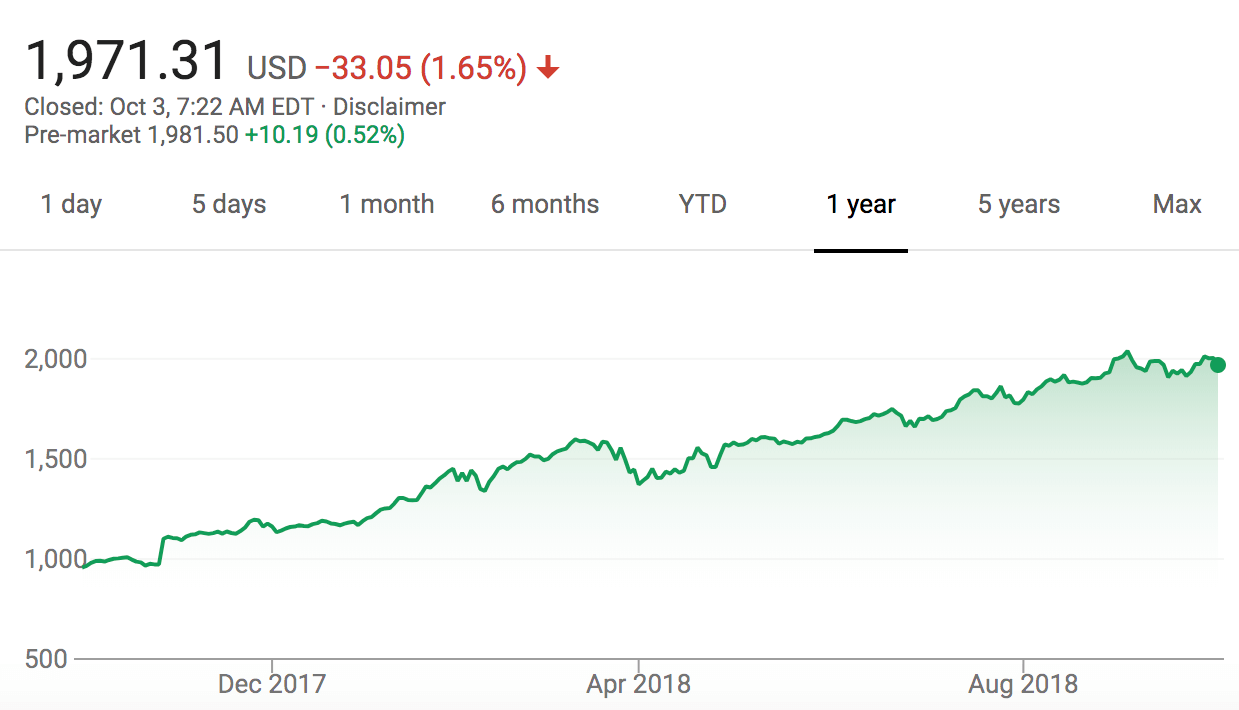
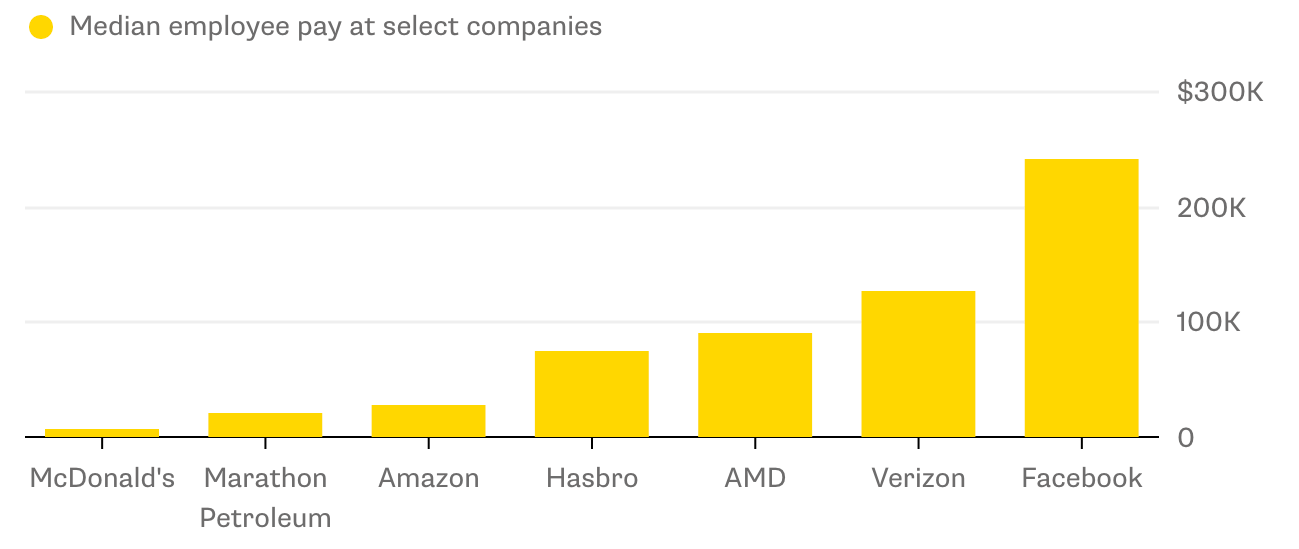

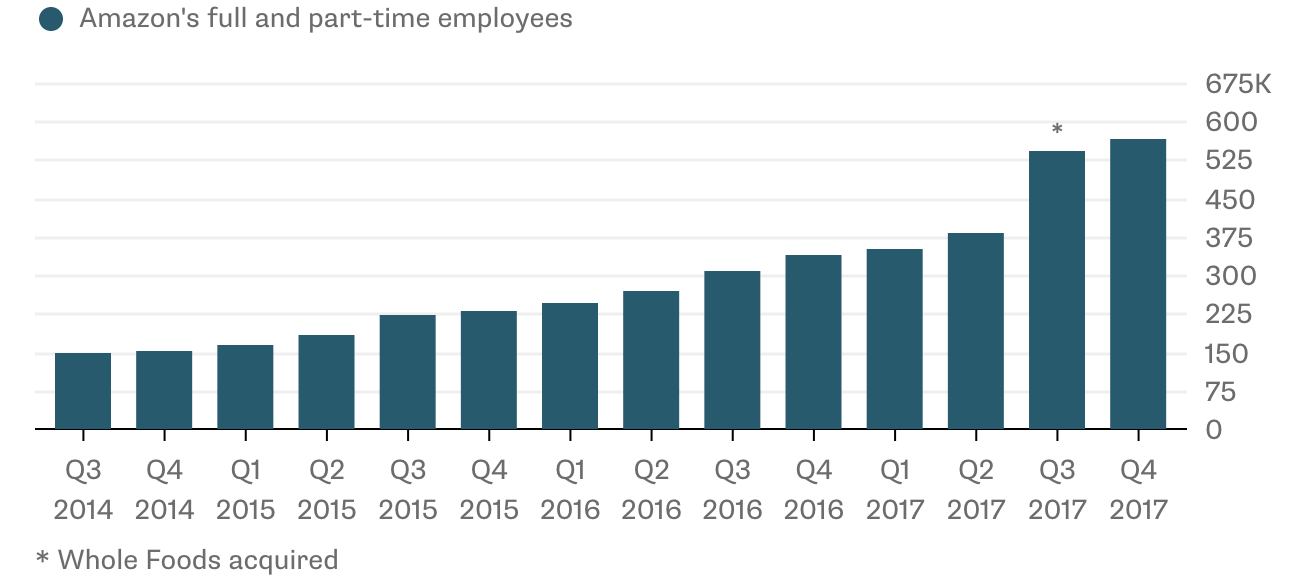
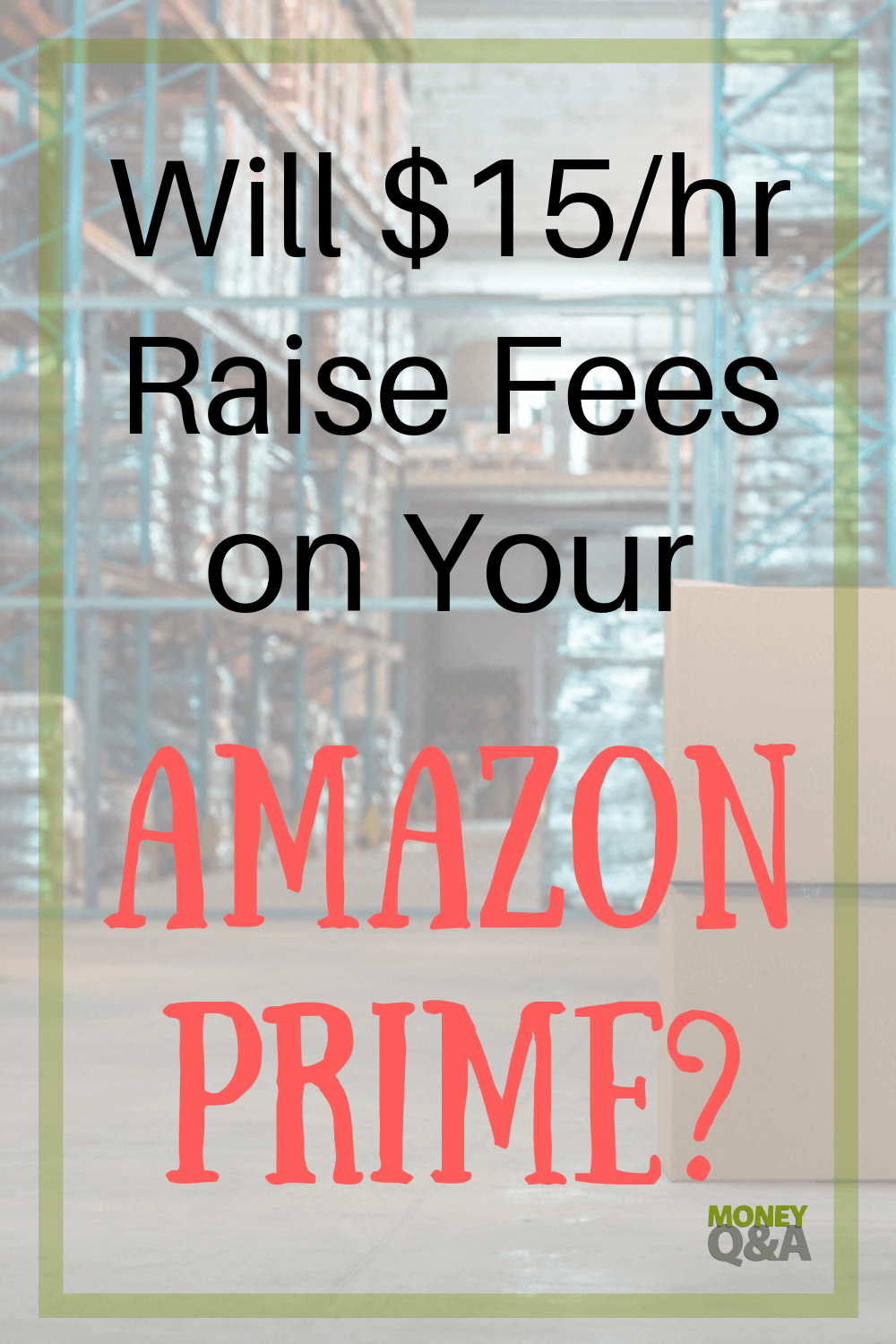
raising minimum wage to $15 causes more problem than any, for all the workers that work for me in the oil fields make more than MIN wage right now and have been doing it for years. they started at min wage and are working up and away from min wage learning new trades and going to classes making them more well rounded in their trade. when you raise the min wage up so high the guys that worked so hard to move up out of min wage will get a raise to min wage again and the brand new guy that knows nothing will make the same as the experienced worker. I will have to raise my cost to whom we are doing work for and they will want me to cut costs, this means that I will be laying off workers and they will be getting unemployment. With moving in wage up you also need to raise everyones wage the same percent that was used for min wage, I myself worked very hard to move up from min wage in high school back in 1996 to where I am know, I had to work and go to school and learn as much as possible for the work I do to move up to superintendent position. when you move everyones wage up min wage gets closer to my pay which then makes me go backwards, Food, rent, gas everything we need to survive goes up in price for every few steps I moved forward it pushes you 3 steps back, everytime I get to where the family and I start living stress free and everything seems to start going smoothly min wage goes up and we are starting to stress on food and all expenses since te price goes up to pay for the min wage increase
I think min wages should go up$15 he. The struggle is hard for family’s that are trying to make a living cant live on $725 hr theres no way when u have children
When the minimum wage goes up, so does the price of everything you buy or rent. Also less jobs will be available. How does it help you if you make $100.00 more a week, while paying $ $150.00 more for groceries, clothes etc. per week?
Minimum wage was never intended to support a family. It was intended as seasonal jobs for students and the bottom of the ladder jobs (motivation to learn and show initiative to move away from minimum wage).
I’m tiring to figure this out just like everyone else. I always thought entry level positions were just that…not something you stayed at. I’ve worked for the same small company for over 33 years. It took a long time to hit $15 an hour and I’m considered skilled labor. As costs have risen for us we elected not to replace an employee that left. That transfers the responsibility onto the rest of us. So if retailers have to raise prices…even at a higher wage, minimum wage workers won’t have the resources to keep up. If everyone gets a raise then every business, service or retail, municipalities…everything rises to compensate.
No one should have to live at or below the poverty level but is this $15 the answer?